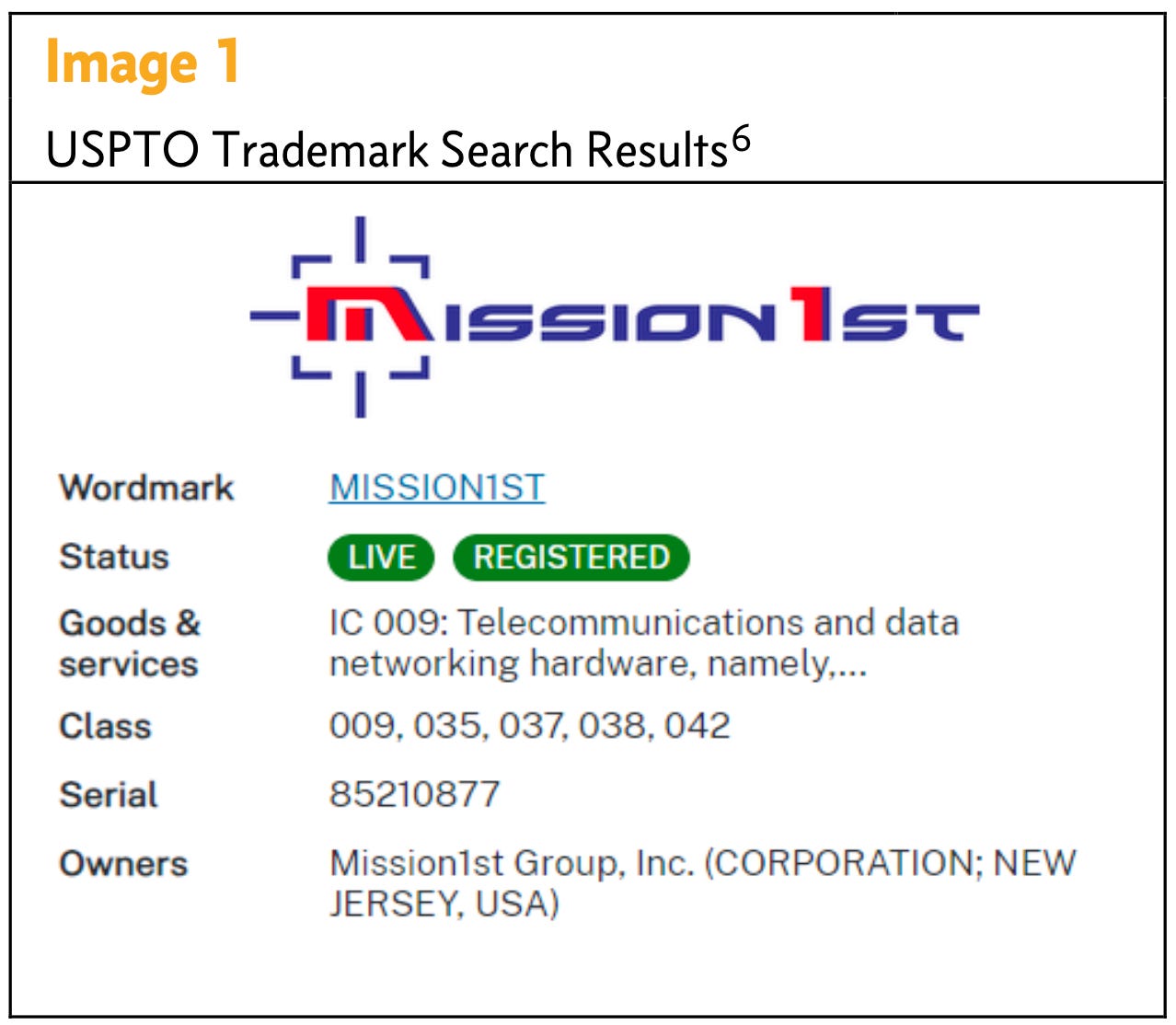Mission Confusible: Trademark Fallout, Daubert Motions and Damages Expert Testimonies
Mission1st Group, Inc. has filed a complaint alleging trademark infringement, unfair competition, false designation of origin, and cybersquatting against Mission First Solutions, LLC.
A trademark dispute has ignited between two companies operating under similar names in the competitive arena of business advisory, IT, telecommunications, engineering support, and risk mitigation services.
The lawsuit recently saw significant developments when the court issued a decisive ruling on expert testimony, barring key portions of Mission First Solutions’ damages defense due to methodological flaws. This pivotal order, which granted Mission1st’s Daubert motion in part, underscores not just the complexity of trademark valuation in the government contracting industry but also highlights the stringent standards courts apply to expert evidence in trademark litigation.
The dispute revolves around Mission1st’s federally registered trademark "MISSION1ST," under which it offers specialized services to military and government entities globally.
The Complaint and the Allegations
Mission1st Group, Inc. began operations in 2003. The company provides critical advisory, telecommunications, engineering support, and risk mitigation services. Most of their clients are government agencies, including the U.S. military.
In 2006, Mission1st started using its trademark, “MISSION1ST.” By 2011, it secured federal trademark registration. The company invested heavily—around $300,000—to build a respected brand in government contracting circles.
In 2016, another company, Mission First Solutions, LLC, entered the market. It offered services identical to Mission1st and targeted similar government clients. Mission First Solutions adopted trademarks strikingly similar to Mission1st’s established brand. They also registered a domain name—mission1s.com—that closely resembled Mission1st’s domain, mission1st.com.
Mission1st soon encountered customer confusion. Emails meant for Mission1st ended up with Mission First Solutions, including messages from significant clients like the National Institutes of Health.
In December 2022, Mission1st tried resolving the issue informally. They sent Mission First Solutions a cease-and-desist letter. Mission First Solutions, however, continued using the similar trademarks and domain, further intensifying customer confusion and potentially damaging Mission1st’s reputation.
Frustrated and concerned about their brand, Mission1st filed a lawsuit. They accuse Mission First Solutions of intentionally capitalizing on their established reputation, seeking both injunctive relief to stop the infringement and monetary damages for their losses.
In the sections below, we will discuss the expert reports submitted by the two experts, deposition questions asked of the Defense’s expert, the Daubert motions filed by the two parties and the Court’s ruling on the Daubert motion.
Paid subscribers get access to original court filed documents:
Expert Report Gregory J. Urbanchuk, MSc., CVA
Expert Report of Kevin W. Christensen, Ph.D.
Memorandum in Support of the Plaintiff’s Motion to Exclude Christensen
Memorandum in support of Defendant Mission First Solution’s Daubert motion to exclude the testimony of Gregory J. Urbanchuk
Defendant’s memorandum of law in opposition to Plaintiff’s motion to exclude the expert report and testimony of Kevin W. Christensen
Transcript of Kevin W. Christensen’s Deposition
Court’s Order on Daubert Motion
The Plaintiff’s Damages Expert Witness
The Plaintiff retained Gregory J. Urbanchuk, MSc., CVA, a seasoned financial expert and Principal at Grassi, where he leads the firm’s Intellectual Property Services within its Forensics, Litigation, and Valuation group.
With over two decades of experience across the U.S., U.K., and Europe, Urbanchuk specializes in quantifying damages in complex commercial disputes involving trademarks, patents, copyrights, trade secrets, and business valuations.
Urbanchuk was retained to quantify how much the Defendant financially benefited from allegedly infringing on Mission1st’s trademark. He did not opine on whether infringement actually occurred—his analysis assumed that it did.
Key Finding: $9.6 Million in Profits
Urbanchuk calculated that Mission First Solutions earned $9.6 million in profits between January 1, 2020 and March 31, 2024 that could be tied to the use of the allegedly infringing marks.
This number was based on revenues of $17.9 million, with about $8.3 million in cost of goods sold deducted.
He excluded operating expenses from the deductions due to lack of data showing whether those were directly tied to the infringing activity.
Future Contracts: Profits TBD
Keep reading with a 7-day free trial
Subscribe to Expert Witness Weekly by Exlitem to keep reading this post and get 7 days of free access to the full post archives.





